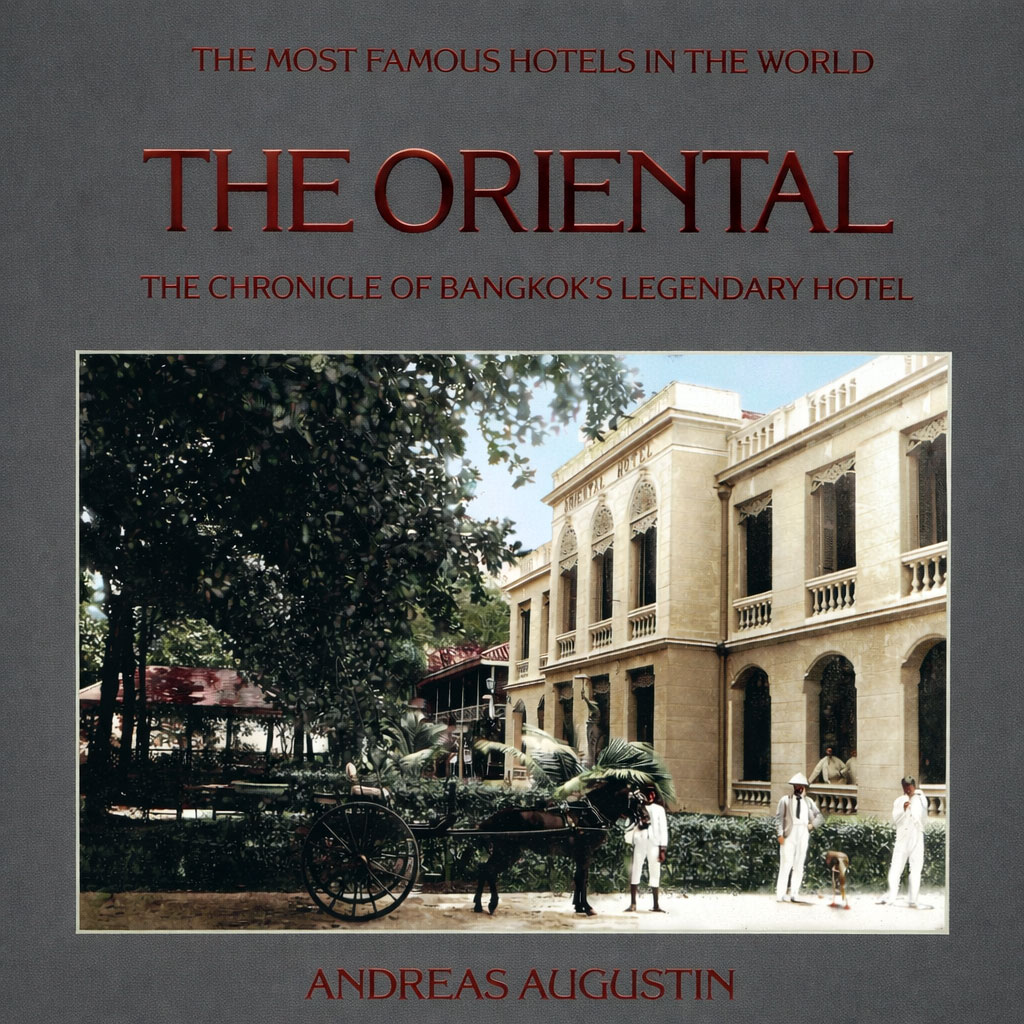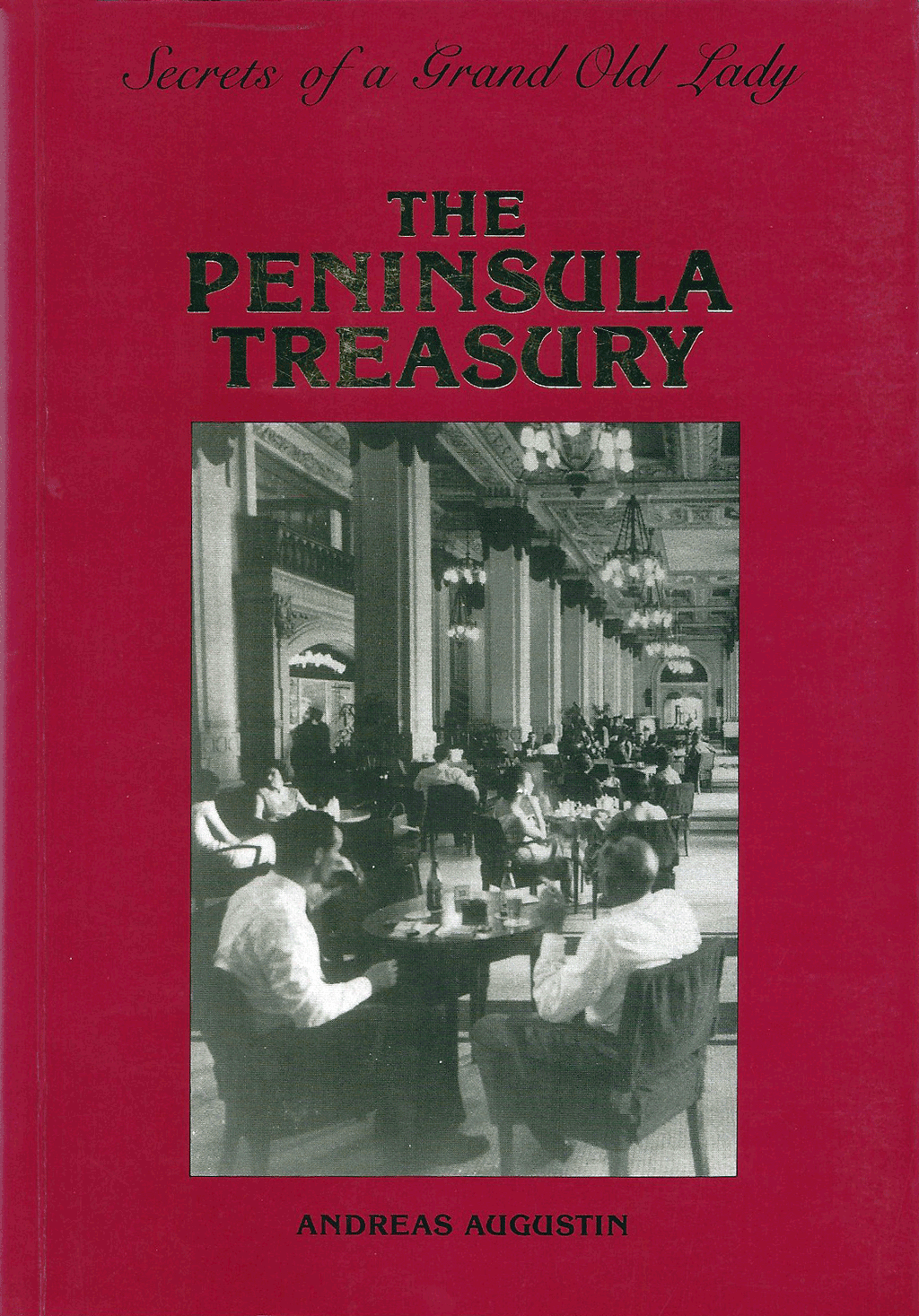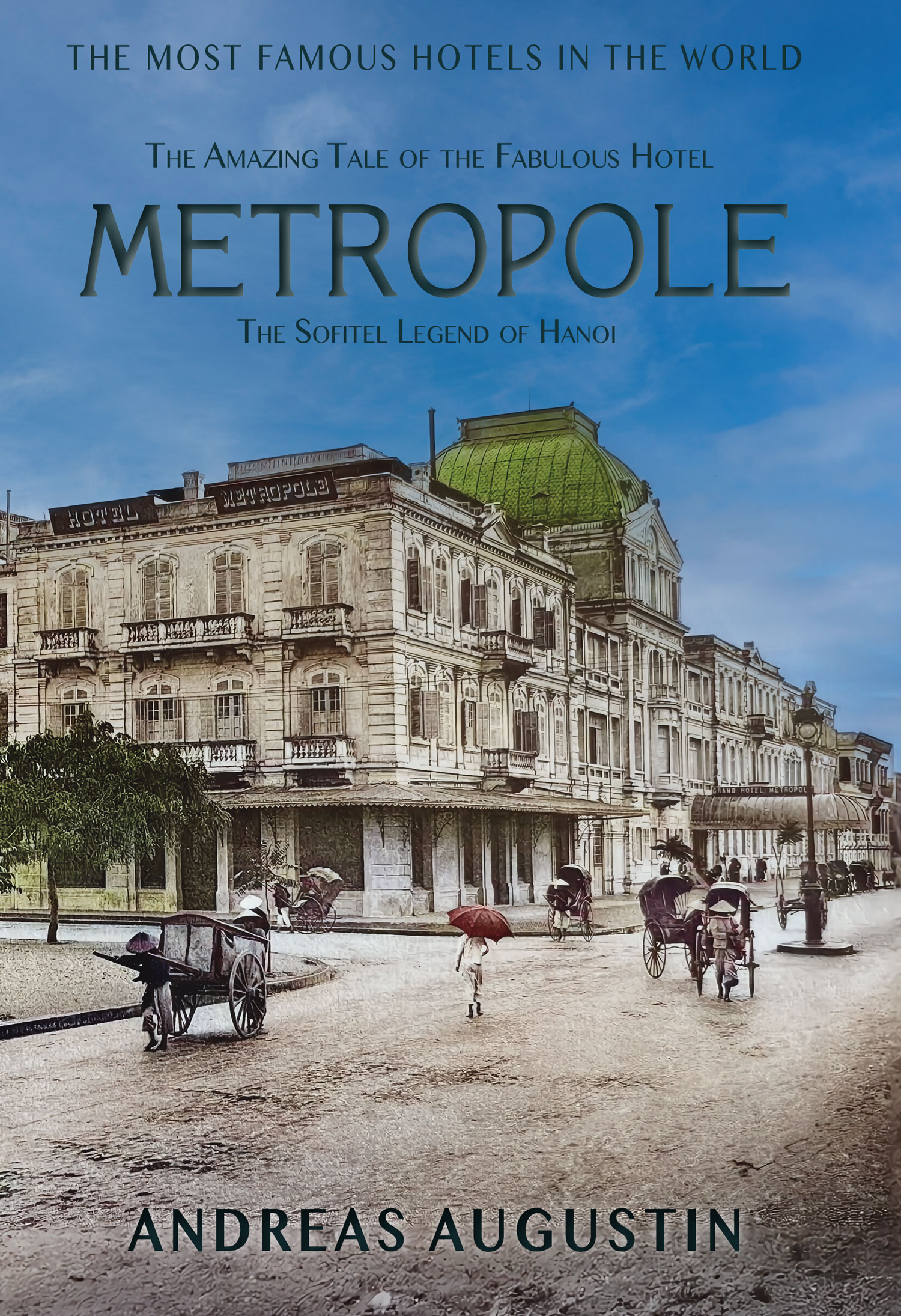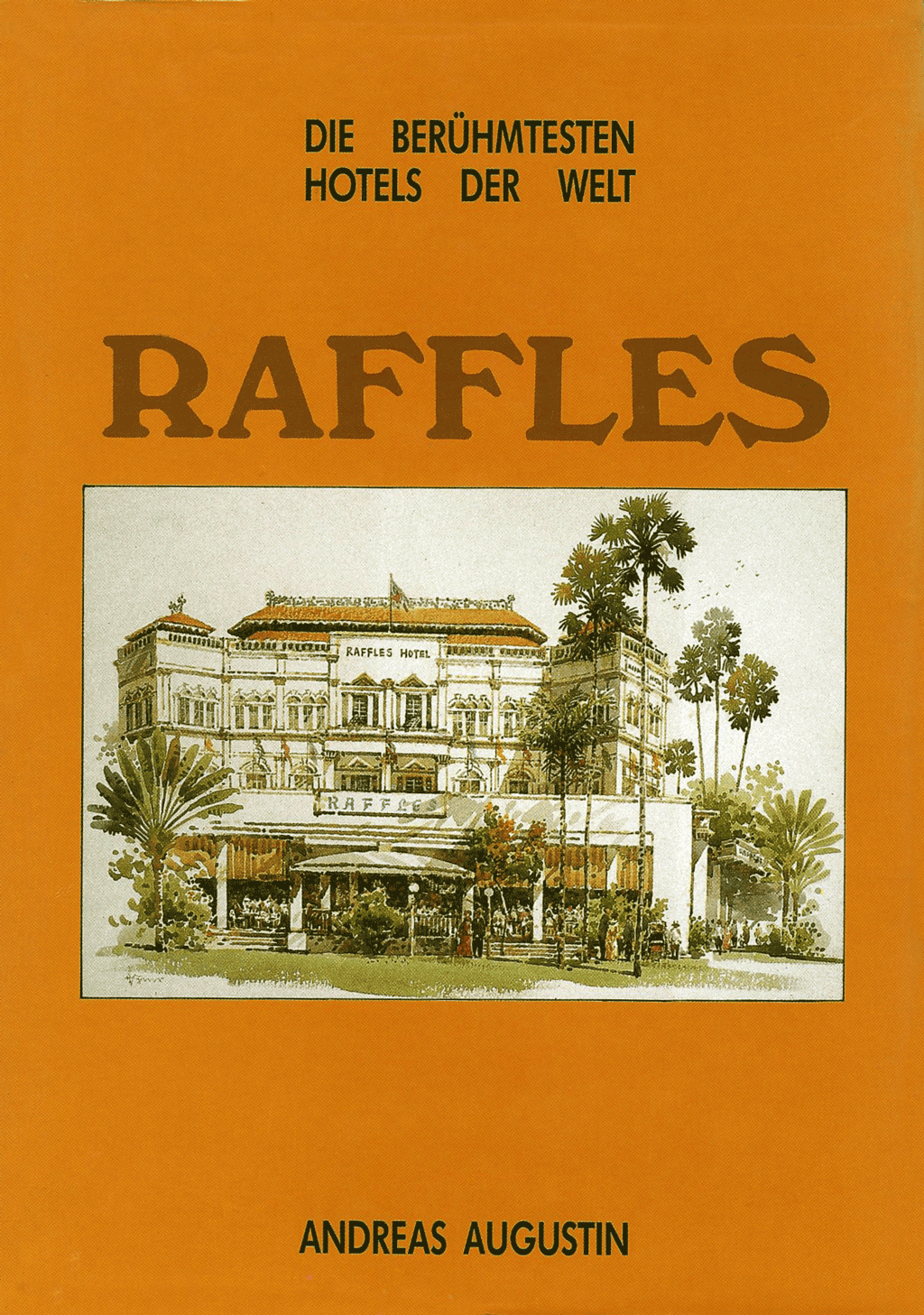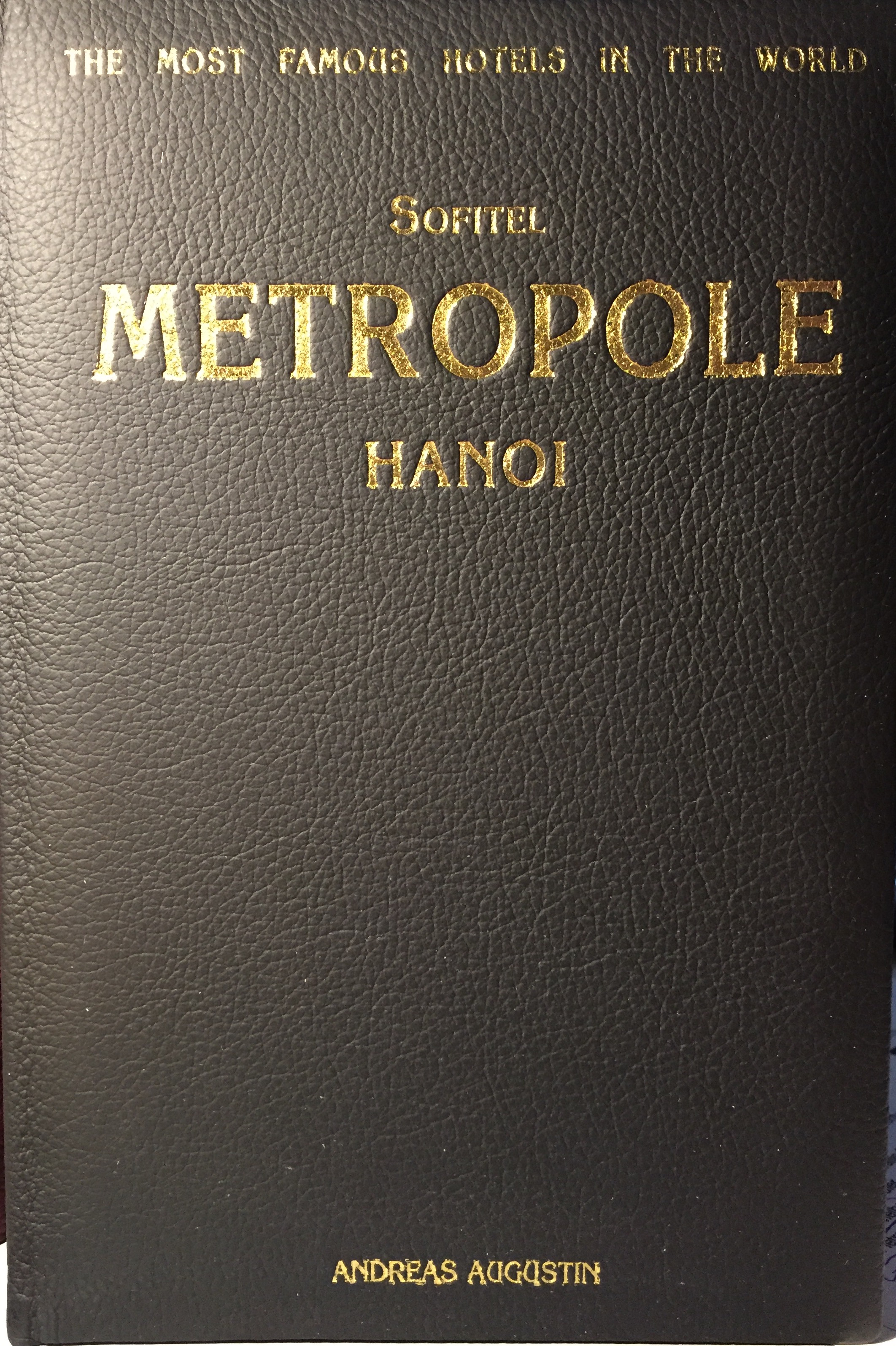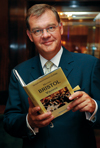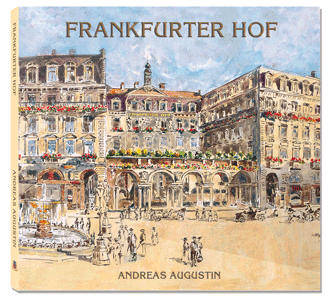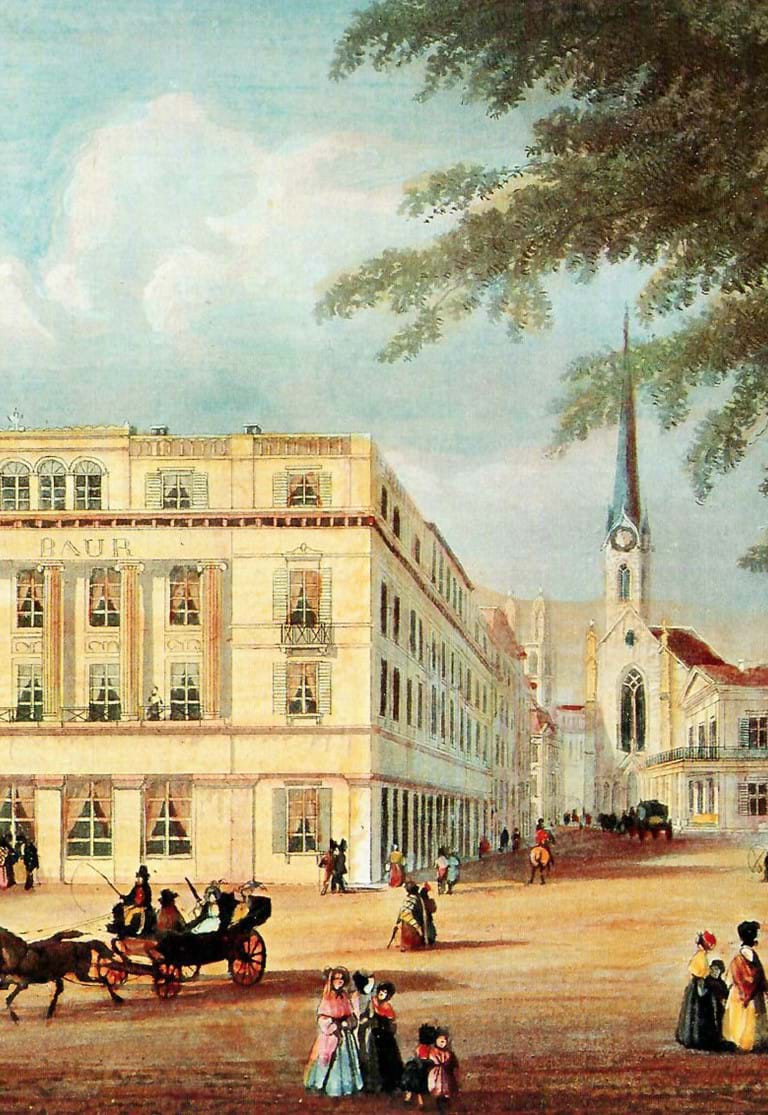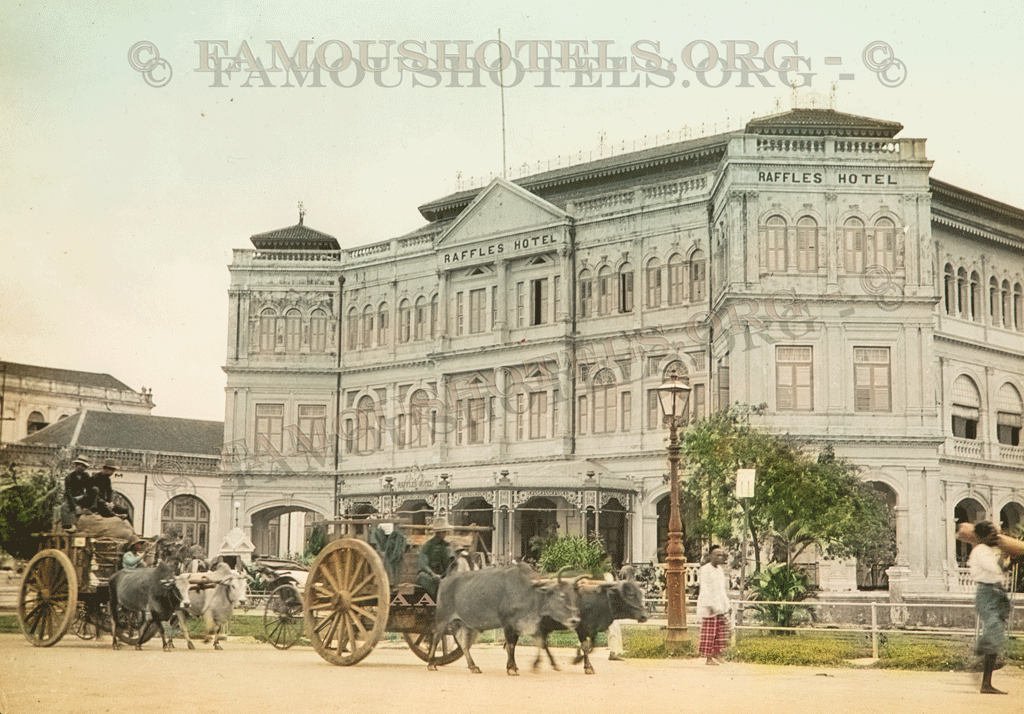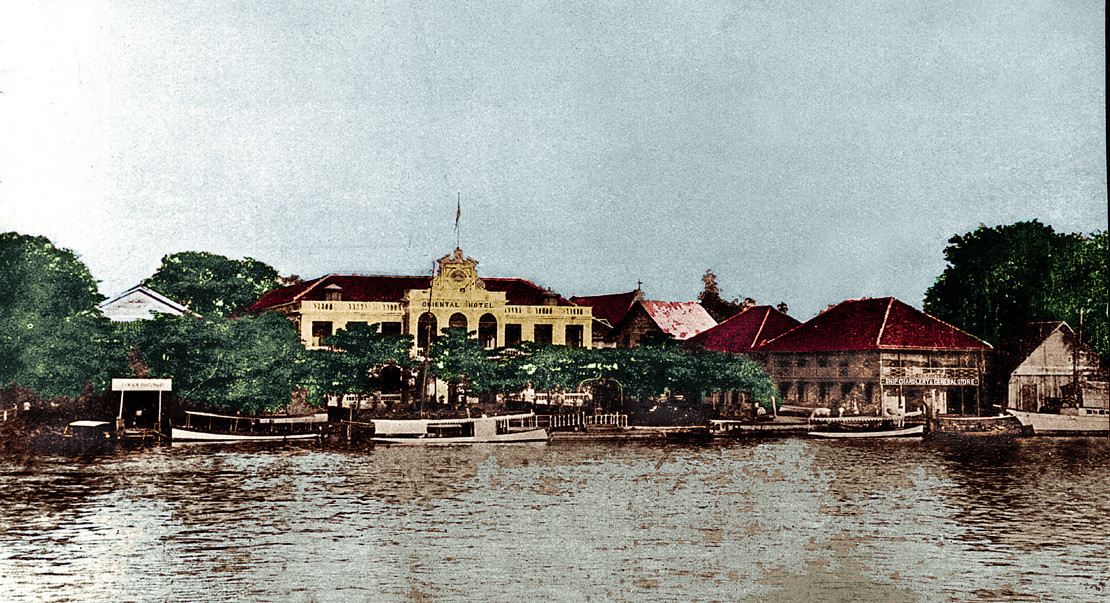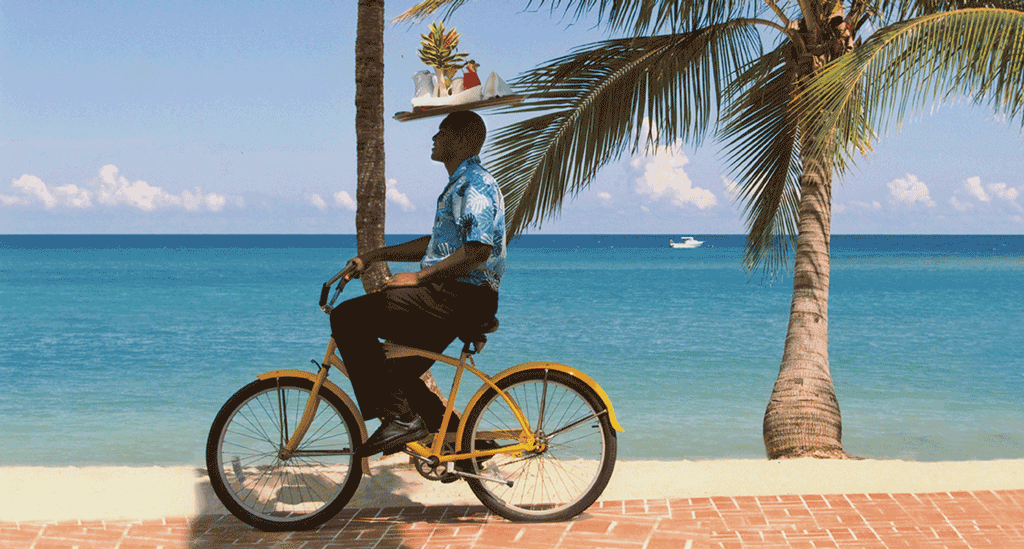The Peninsula – Hong Kong, China (English)
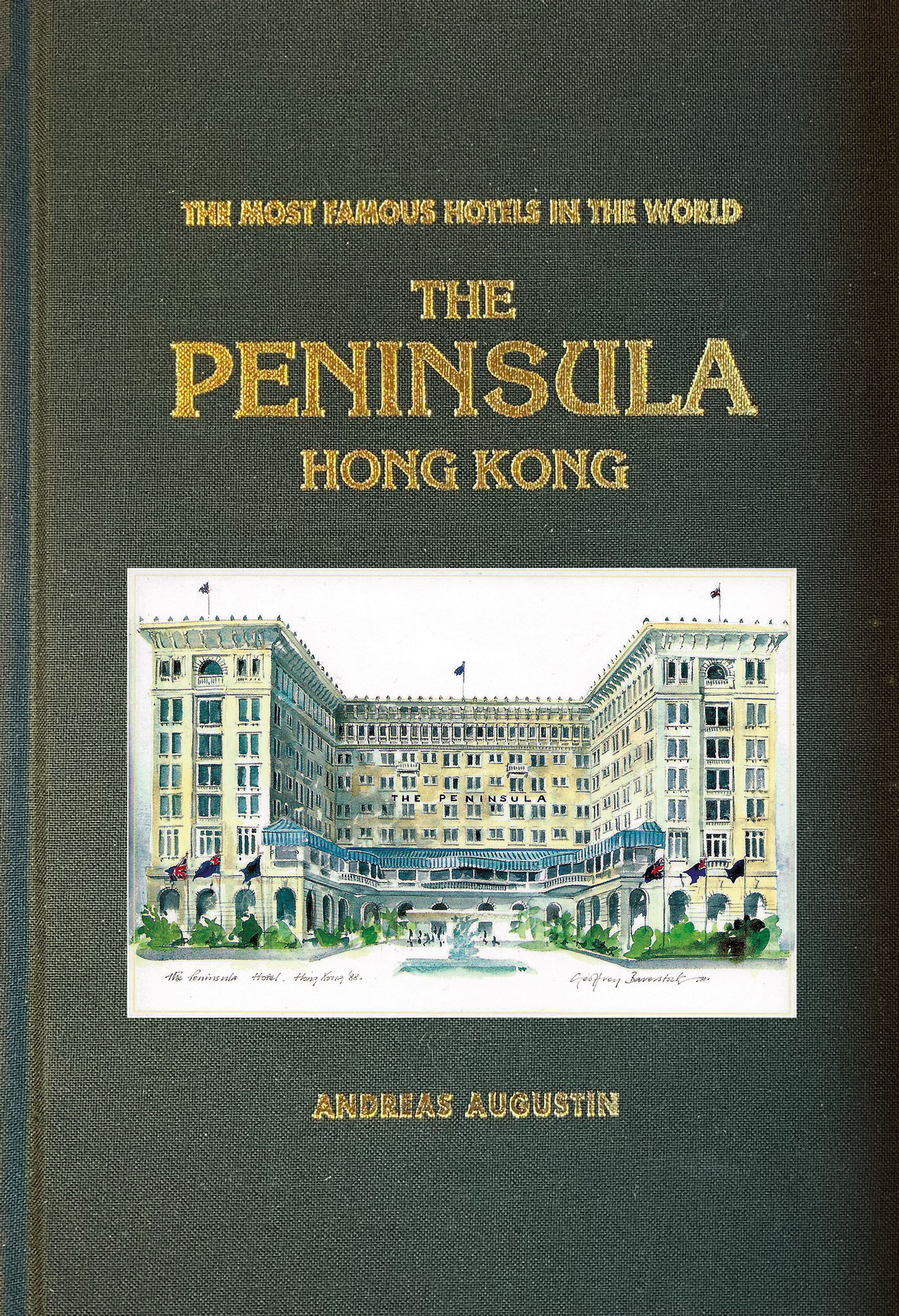
Author
Andreas Augustin
Pages
136
Photographs
Illustrations
over 200 historic and contemporary photos, drawings and images
Leather-bound edition
No
Includes
2 postcards
ISBN
962-7317-03-9
Size/Weight
155 x 235 mm, 700 g
Related Hotel
Price: € 43.00
Add to cart"Anyone who comes to Hong Kong should stay at the Peninsula at least once!" said James Clavell, when author Andreras Augustin called him at his home in Switzerland. He shared this point of view with many celebrities: "Know what I do first thing after arriving in Hong Kong? I take a front room at The Peninsula, open the curtains and watch the ships in the harbour passing by." Noël Coward.
This was the second book in the library of THE MOST FAMOUS HOTELS IN THE WORLD, and the first official biography of The "Pen". After all, The Peninsula is the grand old lady of Hong Kong. She has seen the colony through all imaginable ups and downs. All the great names of the past come alive again. Famous figures parade through this book. Celebrated characters formed The Pen‘s history created legends and became eventually legends themselves.
"Full of fascinating details." THE TIMES
After unearthing the long lost original building plans of Raffles Hotel, thus saving Singapore's most famous hotel from demolition, our reputation for uncompromising historical research quickly spread. In 1988, Urs Aeby, general manager of The Peninsula in Hong Kong, called us to the British Crown Colony. Upon arrival I coined the sentence that would open the book: 'The Peninsula is the largest hotel in the world. It starts at the airport and comes to an end five miles away in the centre of bustling Hong Kong.' I was referring to the hotel's own airport manager who had welcomed us and to a modest Brewster green Rolls Royce that delivered us to the hotel. In 1970 the Pen had placed the largest single order in hotel history with Rolls Royce, buying eight Brewster Green Silver Shadows (ever since then they have bought 50).
On the way from the airport the driver would present you with a cocktail list and order your favourite concoction by car-telephone. When you arrived at the hotel it was waiting for you. All arriving guests, even spoilt millionaires, were amazed. Once you entered the lobby, you were stunned by its overwhelming size and busy life. In the afternoons a band played. It was the place to be in Hong Kong. Hundreds of green mango juices, the Pen's house drink, were sold. We started digging into the past of the Hong Kong and Shanghai Hotels Company. I lived with my wifeCarola, a historian, in the Peninsula's western wing. Every morning we walked to the Hong Kong Museum of History in Nathan Road. I carried my first laptop. We were standing on the cusp of the age of desktop publishing. The Hong Kong press published the story that we were researching the hotel's history. The response was overwhelming. 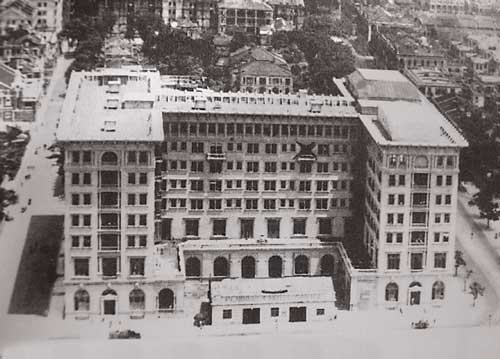 A former member of the Second Battalion of the Coldstream Guards, who was billeted at the hotel during Chinese Civil War in 1927, sent us a whole album of his personal photographs of the Peninsula in that year. He had marked the room he was in with an X.
A former member of the Second Battalion of the Coldstream Guards, who was billeted at the hotel during Chinese Civil War in 1927, sent us a whole album of his personal photographs of the Peninsula in that year. He had marked the room he was in with an X.
The honourable Sir Michael Kadoorie, chairman of Hong Kong and Shanghai Hotels Limited, a brilliant man, introduced me to his father, the 89-year-old Lawrence Baron Kadoorie, and his uncle, Sir Horace. These gentlemen had carried the Hong Kong and Shanghai Hotels Company through stormy decades of war and crisis. They still went to their office every day. They told me about the first years of the hotel; I remember how their eyes sparkled as they remembered a charity ball in 1931, when they had collected some $200,000 in donations.
In 1993 Lord Kadoorie and Sir Horace, surrounded by their family, attended the topping out of the new Peninsula towers. I learned to appreciate Michael Kadoorie's enormous sense of practicability. During the site inspection of a new showroom at the Peninsula, he suddenly climbed into a bathtub in his suit, leaned back and looked up to the ceiling. Pointing at the spotlight overhead, he said: 'That is disturbing. It must be changed.'
Ever since that moment, I always look forward to the bathroom part of every site inspection I am asked to attend. I always get into the bathtub and more often than not I have to criticise the spotlight. It is, amazingly, always there. Kadoorie was also the spiritus rector of all the electronic gadgets in every room. A control panel at your bedside regulated temperature, light and everything that could be switched on or off. It had its merits and its disadvantages: knowing the outside temperature before you left your room was most practical. But one night, after a power failure, the light went on, the radio started playing, the TV in the sitting room zipped from one channel to the next, the loudspeaker in the bathroom drummed while the bedroom curtains slowly swung open.
Working at the Peninsula was a culinary feast. Everything was of the highest standard. The Veranda, Gaddi's, Chesa, ... Simple home-cooked fare was simply out of the question. After two months of being spoilt rotten by the daily culinary feast, I took the stairs at the back of the house and walked to chef de cuisine Erich Schali, begging for a bowl of boiled potatoes with butter and salt on the side. It took me a while to convince the room service waiter that it was absolutely alright that they were sent unpeeled. However, I couldn't stop him from peeling them for us.
At this time Asia had many hotels of glamorous fame, most of them relicts of a colonial past. Some were forgotten, displaying a tone of etiolated nostalgia, fading away like an old lounge chair, bleached and worn out. Changes of owners, political reasons, lack of investment: the usual ghosts of our industry never crossed the well-guarded doorsteps of the Peninsula. The Kadoorie family always personally designated their general managers. In 1948, for example, they brought in Leo Gaddi. In 1953 the hotel opened Asia's finest restaurant, Gaddi's, on the ground floor in the east wing. 'My father wanted to have the best restaurant in Hong Kong,' Michael Kadoorie told us, 'so he suggested we should call it 'Gaddi's' after the general manager, to make sure that he would do his best to run it.' Today the old Gaddie's menus are collector's items. We were always looking forward to seeing maitre Rolf Heiniger in action. When he explained the menu of the night, it was like a priest reading from the bible. It came in a mixture of French, English and Swiss German, supported by gentle gestures elegantly describing how the fish was caught, the deer hunted or the bird shot. We usually ordered what he suggested.
The Peninsula houses the most exclusive shopping arcade. On busy days, groups of Japanese travellers would queue impatiently in front of theLouis Vuitton shop to enter. Our leather-bound books sold particularly well in the hotel's own souvenir shop. For visitors to the new pooldeck we even produced plastic-bound editions with gold stamping. Everybody at the hotel supported us, appreciative that for the first time somebody was collecting all the stories of the house. There were legendary former managers like Felix M. Bieger, a warm-hearted beloved hotelier, respected by staff and guests alike.Peter Gautschi recalled the days when he toured Switzerland with the restaurant designer Dexter Yeh in search of a typical cosy Swiss mountain restaurant. He built the 'Chesa' (the Swiss name for house) in the heart of the hotel. We flew to St. Moritz to see another former GM, Max Keller, at the Palace. Meanwhile, Eric Waldburger, who had succeeded Urs Aeby, displayed his red Ferrari toy car collection in his office, dreaming of having a driver's licence.
The late Heinz Waldvogel came up with a great diet to loose the weight we had gained in the Pen's sophisticated collection of restaurants. While updating the book, in 199,4 we witnessed the arrival of Peter Borer, the new general manager of the Peninsula (In 2014, he would be appointed chief operating officer of The Peninsula Hotels). Karen Penlington and Lynn Grebstat arranged interviews with long-serving staff. Later, Sian Griffiths accompanied almost ten editions of the two different books we produced about the Peninsula. The Peninsula book's later editions also marked the first cooperation with our competent editor, long-term co-author and friend Andrew Williamson, a historian from Oxford.
Many staff members had been working at the hotel for decades. As a pageboy 'Oldstar' Chan Pak had handed flowers to the governor on the opening day in 1928! Bartender Chung 'Johnny' Kam Hung had been there for 30 years. He had served Clark Gabel, Roger Moore, Frank Sinatra and the whole list. It took us many nights to take in all his memories. In the kitchen the 'salmon king' had been cutting immaculate paper-thin slices of fresh salmon every day for the past 30 years.
Felix Bieger gave me the telephone number of bestselling author James Clavell. He had lived at the hotel for 18 months while writing Noble House, Taipan and Shougun. I called him at his home in Switzerland. He simply couldn't believe that somebody was calling from the Pen writing a book about a hotel. He was sure it was a joke and asked tricky questions like 'what time is it right now in Hong Kong? Describe the lobby? What was the name of the general manager in 1970?' etc... It took some time and didn't look good on my telephone bill but finally he trusted me. He told me anecdotes and even allowed me to quote him saying 'Anyone who comes to Hong Kong should stay at the Peninsula at least once.'
From now on all our books contained postcards. One of them was addressed to 'The Friends of The Most Famous Hotels in the World.' We founded this new club to gather fans of historic hotels. The return of the postcards from all our books is still amazing, constituting a formidable database of well-travelled 'Friends'. Of course today you can register for it on the web. But then, in the early 1990s, there was no Internet, no e-mail and mobile phones were the size and weight of a handbag.
The day we left the Peninsula after three months, an old lift 'boy' came all the way from his elevator to the main entrance. He took our hands and pressed them for a long time; his eyes were filled with tears and so were ours. At the airport we found the man who had once welcomed us. Now he helped us with the check-in formalities and bade us farewell. And we remembered: the Peninsula is the largest hotel in the world.
Andreas Augustin

